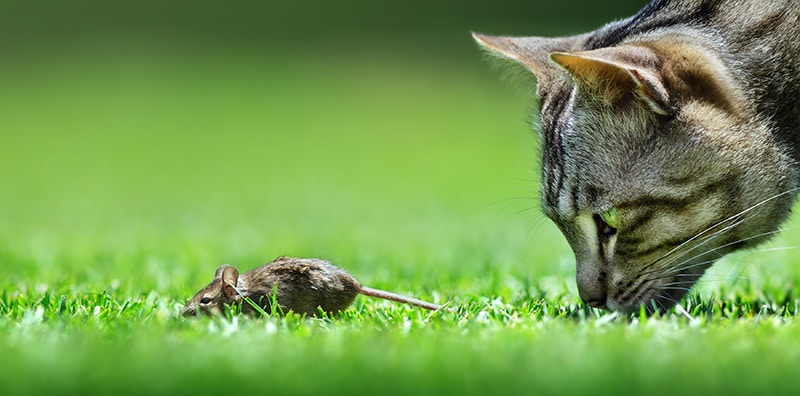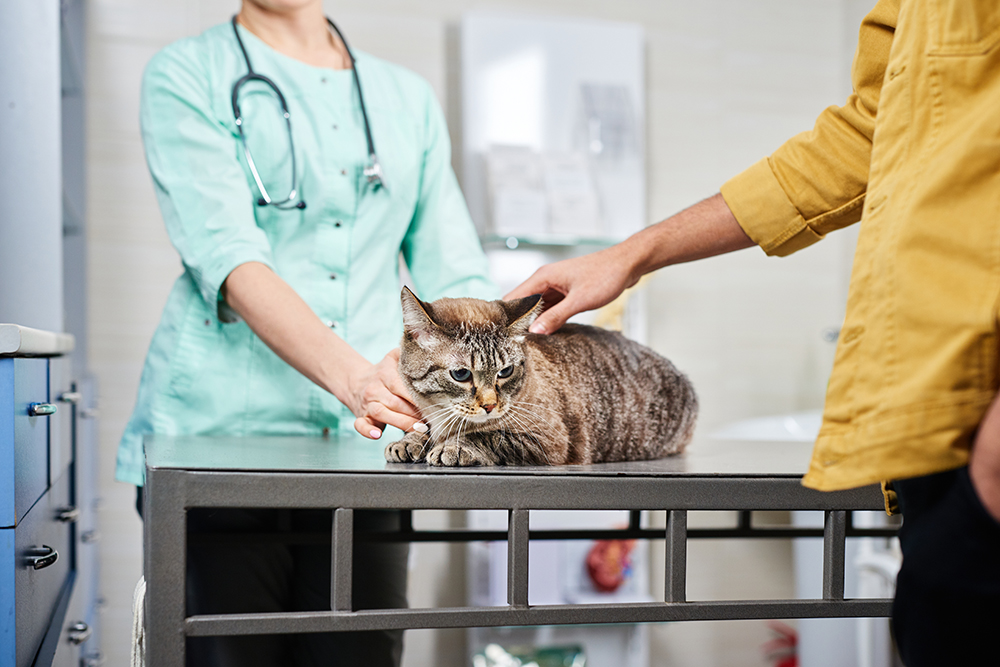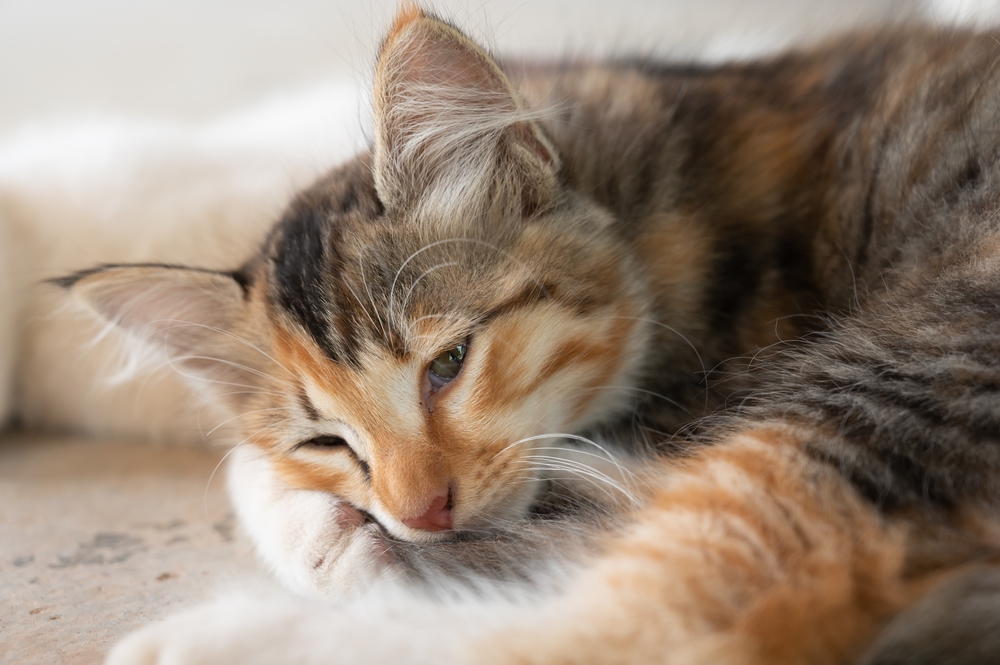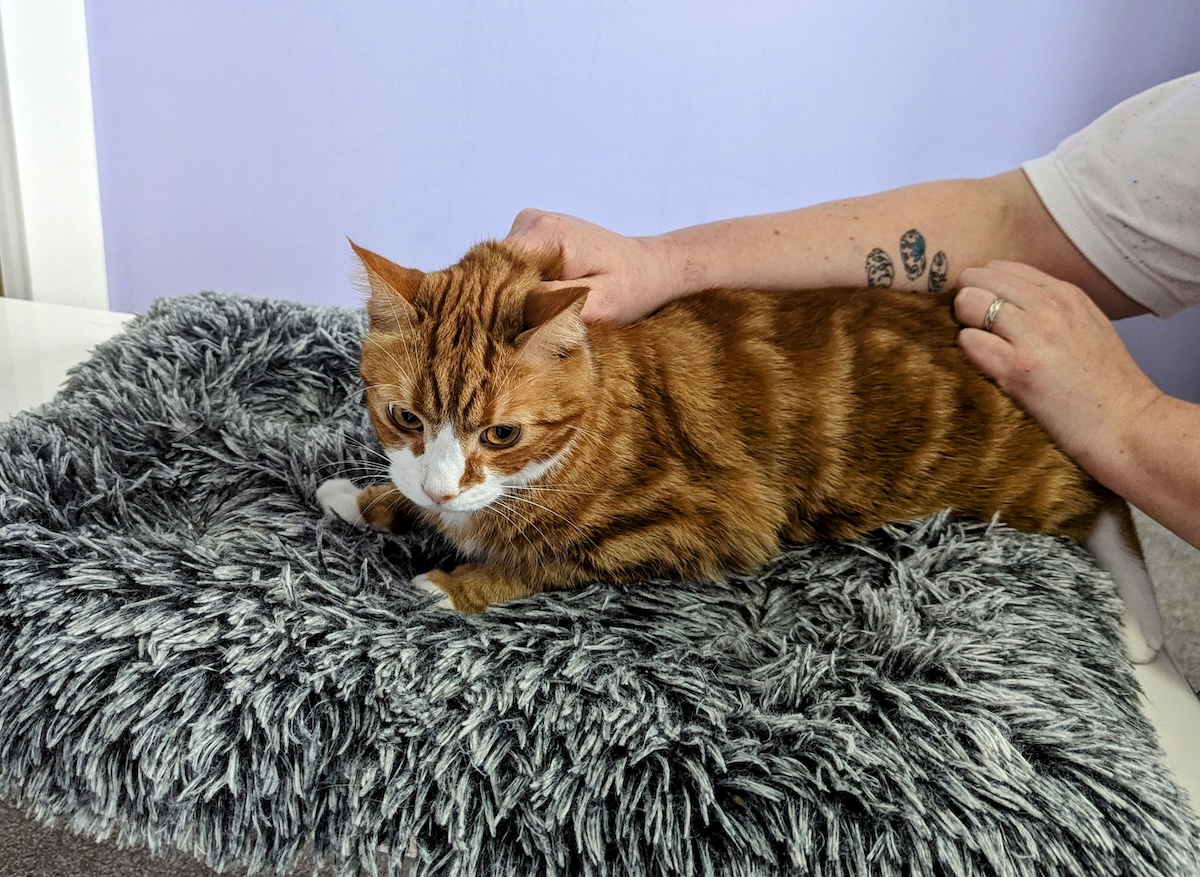Click to Skip Ahead
Rats don’t get much love from pop culture or social media. But that’s not fair because these rodents can be loving, caring, and gentle pets. Cats, in contrast, are everyone’s favorites. More importantly, they are a threat to rats; cats kill, eat, or just hunt the little guys for fun.
So, does that mean these two can never be friends?
In most instances, allowing pet cats and rats to interact with each other isn’t advised. In some unique circumstances, exceptions do exist; with early socialization, it’s sometimes possible (but not guaranteed) to turn things around. You will need to put a lot of effort into supervision, of course, and it may not always work as rats intrinsically fear cats. But ultimately, this is a risk at best, and therefore, not something that’s advised. Can rats and cats coexist? Let’s find out!

Why Do Cats Hunt Rats in the First Place?
In the wilderness, cats are obligate carnivores and need to have meat as their primary food source. So, it’s only natural for them to hunt small rodents as they are the main source of food for felines in the wild. Without a steady supply of meat protein, cats won’t be able to grow, reproduce, and repair body tissues.
Rodents aren’t the only thing on the menu; cats also hunt birds, other small mammals, lizards, and smaller snakes too. Now, cats hunt for two reasons: to get food or to hone their hunting skills. This applies to both wild and domestic kitties. That’s why any small animal that’s rendered by a cat as prey won’t be safe living under the same roof as the cat.
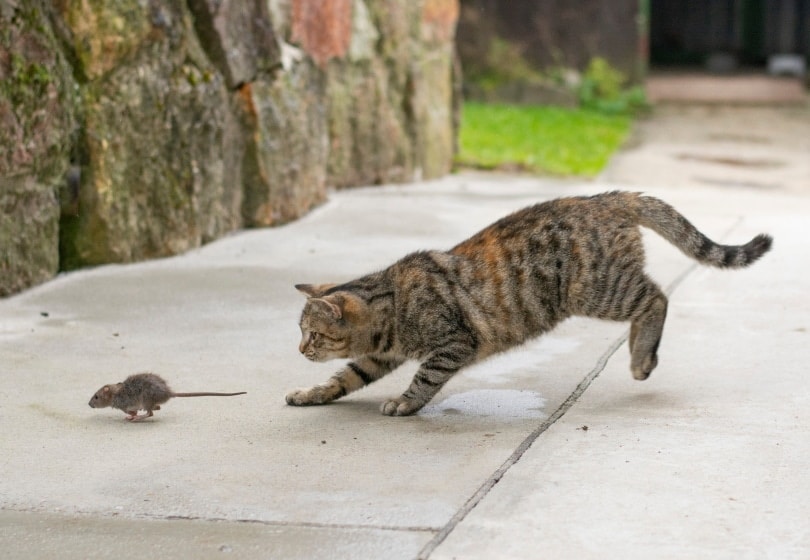
Are They Good at Killing Rats?
The short answer is no, cats aren’t that great at chasing or catching these rodents down. However, cats are useful deterrents for rats. Humans have been using felines as the ultimate remedy against rodents for thousands of years. However, recent research 1 highlights that cats rarely attempted to catch large (>300 grams) rats when they had alternatives (in the form of smaller prey). Another study found similar results, where cats preferred smaller rats to go after 2.
Nonetheless, cats were observed stalking rats, and the presence of cats led to the rats moving to different locations. This apparent movement of rats is what humans might perceive as a cat being an effective rat controller.
The fact that the rats chose to occupy areas with fewer cats is fascinating because, in experiments involving rats 3, they appeared more defensive even if they could just smell (but not see) predators such as cats. This has implications for pets, as your pet rat may be able to smell your cat even if they’re physically separated from each other.

Felines and Rodents as Friends: Is It Possible?
Well, the prevailing opinion is that this shouldn’t be encouraged. Exceptions exist and at times, you might notice the two species interacting on social media. This largely depends on their personalities and the way they were brought up. If you adopt both pets as kits and provide plenty of supervision, this could happen. However, it’s important to keep in mind that social media is a glimpse into someone else’s life, and what you see might not be a full-time occurrence.
What’s important is that cats don’t necessarily have a need for friendship with other species. Cats are solitary, and though feral cats may form colonies (known as clowders or glarings), they still hunt individually. As pets, multiple cats can generally get along if each cat feels like their needs are sufficiently met.
Furthermore, when pet cats are playing, they’re in fact hunting. Therefore, it’s not beyond the realm of possibility that your pet cat would injure your rat during a session of play, even if they don’t necessarily think they’re going to eat a large pet.
Therefore, though this is possible, it’s certainly not something that we advise or encourage.
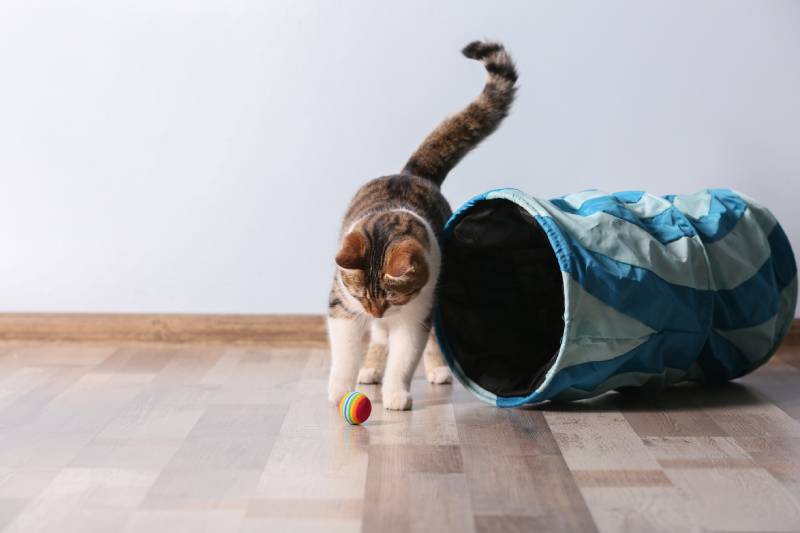
The Cat’s Background: Does It Matter?
Not really. Genetics can play a role in your cat’s behavior and disposition to some extent 4. Therefore, some of your cat’s behavior idiosyncrasies might be breed-related. However, all cats can hunt, and can definitely play rough enough to injure a pet rat. Furthermore, as previously mentioned, even the smell of a cat can cause behavioral changes in rats.

Rats Can Fight Back and Harm Cats
This might come as a surprise, but felines often take huge risks when attacking prey. Prey can fight back, causing serious injuries to the feline. Rats do carry a powerful bite, and will bite if startled or captured. And if they carry an infection, they can pass it on to your cat.
In fact, this is a strategy some parasites that infect cats use 5 – when these parasites are present in rodents, they cause them to lose their fear of cats, increasing the likelihood of a cat capturing the rodent and ingesting the parasite. Therefore, a rat that seemingly is “comfortable” around a cat might not be friendly and tolerate the cat involuntarily.
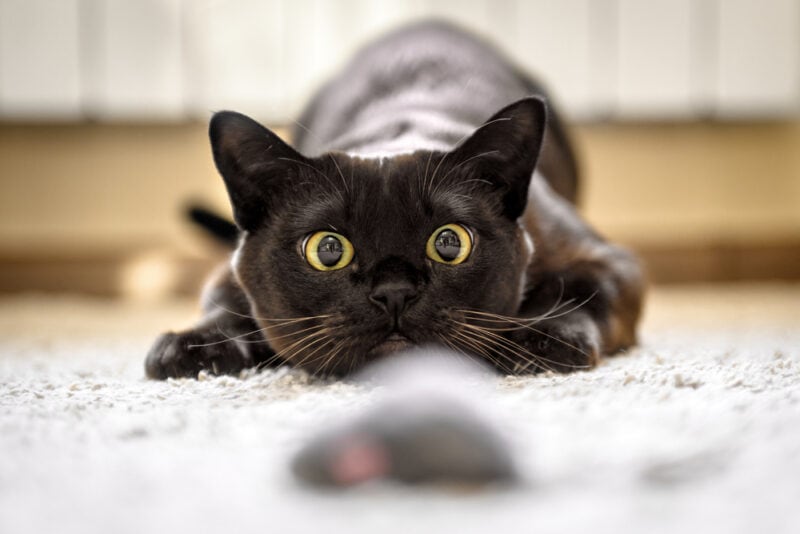
Do Rats Attack Cats? What About Kittens?
Here’s another fact that you might not know: rats can kill cats and even dogs even without passing a parasite to them! This only applies to kittens and puppies, of course, and rats usually attack the smallest breeds. Therefore, if your cat recently gave birth to a bunch of adorable kittens and you have a big, mighty pet rat, they could attack those babies. That happens rarely, but you still need to be careful.

So, Can These Pets Co-exist Peacefully?
In all fairness, it would be best to not consider housing these pets together, even in separate rooms. Ideally, these pets should never coexist, as that may end badly for the rodent. Though it would hypothetically be possible to physically separate the two animals in a house, your rat would only have to smell your cat to develop adverse behaviors and physiological changes. This includes smelling your cat after you’ve petted your cat and moved into the same room as your rat – your cat’s scent would be on your body and clothes.
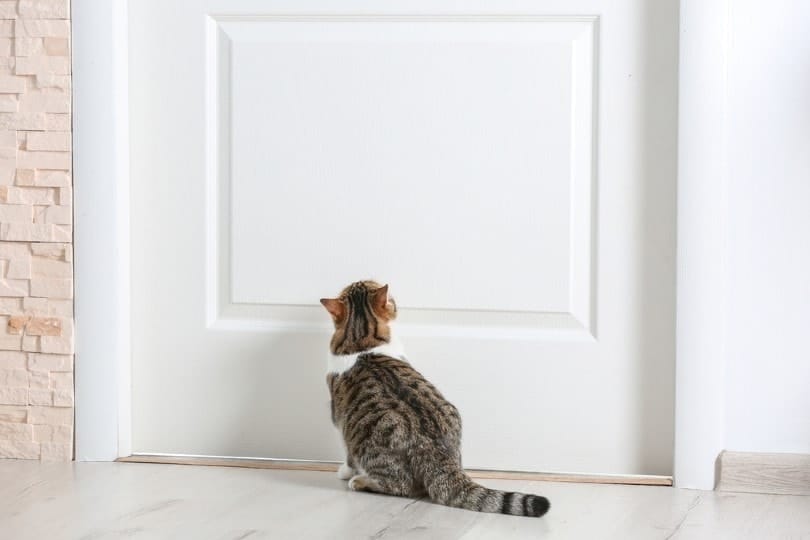

Conclusion
A friendship between a cat and a rat is not a common thing. Cats are natural-born hunters and may inadvertently injure or hurt a rat. The rat would also be stressed by the cat’s presence and therefore, it isn’t considered wise or ethical to house them together, even if they are physically separated. Instead, you should get pets that are safer to keep together with your pet cat or rat.
Featured Image Credit: Etienne Outram, Shutterstock

